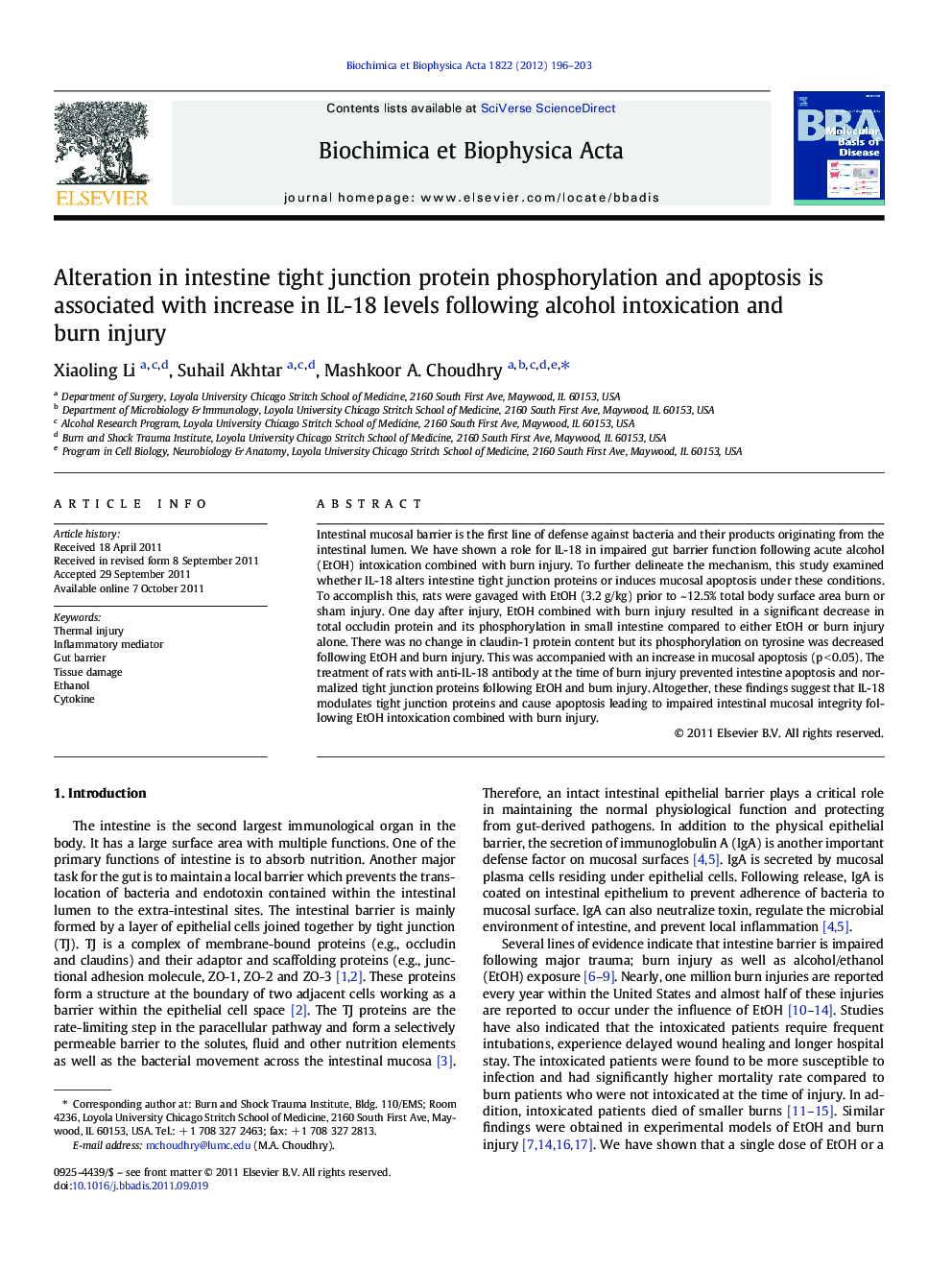| Article ID | Journal | Published Year | Pages | File Type |
|---|---|---|---|---|
| 1905024 | Biochimica et Biophysica Acta (BBA) - Molecular Basis of Disease | 2012 | 8 Pages |
Intestinal mucosal barrier is the first line of defense against bacteria and their products originating from the intestinal lumen. We have shown a role for IL-18 in impaired gut barrier function following acute alcohol (EtOH) intoxication combined with burn injury. To further delineate the mechanism, this study examined whether IL-18 alters intestine tight junction proteins or induces mucosal apoptosis under these conditions. To accomplish this, rats were gavaged with EtOH (3.2 g/kg) prior to ~ 12.5% total body surface area burn or sham injury. One day after injury, EtOH combined with burn injury resulted in a significant decrease in total occludin protein and its phosphorylation in small intestine compared to either EtOH or burn injury alone. There was no change in claudin-1 protein content but its phosphorylation on tyrosine was decreased following EtOH and burn injury. This was accompanied with an increase in mucosal apoptosis (p < 0.05). The treatment of rats with anti-IL-18 antibody at the time of burn injury prevented intestine apoptosis and normalized tight junction proteins following EtOH and burn injury. Altogether, these findings suggest that IL-18 modulates tight junction proteins and cause apoptosis leading to impaired intestinal mucosal integrity following EtOH intoxication combined with burn injury.
► We found that IL-18 modulates tight junction proteins after alcohol and burn injury. ► IL-18 also causes an increase in intestinal apoptosis after alcohol and burn injury. ► IL-18 disrupts gut barrier function following alcohol and burn injury.
